How to avoid losing a fortune by answering these 22 questions
How often do you see a house burn down?
More often, we see houses that have gradually deteriorated from their former glory. Poor design, slapstick construction and lack of maintenance are usually to blame.
It’s the same with your wealth. It’s unlikely that you will lose your money overnight. Without a plan, the right questions, honest answers and taking the correct steps, your financial property will simply decay over time!
Click on the following links or scroll down to discover how to prevent financial decay:
- How’s My Cash Flow?
- What Am I Worth Financially?
- Will I Have Enough to Retire On?
- Will the Money Last?
- Will My Family Be Okay if I Die?
- How is Procrastination Costing Me?
- How Can I Pay Off My Loan Faster?
- Should I Pay Down Debt or Invest?
- How Do I Save for a Specific Goal?
- How Can I Better Grow My Wealth?
- How Much Tax Will I Pay?
- How Are My Investments Taxed?
- How Will Generosity Reduce My Tax?
- Will Inflation Ruin My Retirement?
- What Is My “Real” Rate of Return?
- How Do Fees Impact My Wealth?
- When Should I Take My CPP?
- How Do I Better Grow My RRSP?
- How Does an RRSP Lower My Taxes?
- Should I Invest in a TFSA or RRSP?
- TFSA or Taxable Investment?
- How does a RRIF work?

How's My Cash Flow?
Everyone wants to get ahead financially by saving for the important goals in life and by paying down debt. Many others want to get ahead by convincing us we should buy everything they offer!
The result is that we take the bait and open our wallets too often! Our expenses become greater than our income and we risk being consumed by debt. We end up feeling a total loss of control and desperate for a solution.
No one should be burdened by crushing debt and unfulfilled goals, especially when the solution is so simple.
Successful Cash Flow Planning is Quite Simple:
- Create a Cash Flow Statement in order to clearly understand your existing income and spending.
- Determine the goals that are important to you. For example: Financial independence so that you can choose whether to work or not, post-secondary education for the children or perhaps a second residence or vacation property.
- In response, create a Cash Flow Plan that fuels and protects those goals.
Don’t get overwhelmed here – just get started! The first, most important step is something you can do entirely on your own. Using our simple Cash Flow Calculator, prepare an initial cash flow statement. Then, click the “Print” or “PDF” buttons and email us a copy to evaluate. We can then schedule a call to discuss your situation further and determine what next steps you can take to begin getting the results you want.
All progress begins with telling the truth. The moment you complete your cash flow statement, you will have taken a crucial step toward developing a financial plan.
You are welcome to dig deeper. Download the Cash Flow Infographic or use our Cash Flow Calculator.

What Am I Worth Financially?
Whether it be a number to track financial progress, being able to call yourself a millionaire, multimillionaire, etc., your net worth is an important number to know.
Your net worth is a great measure of all your hard work to date.
Net worth is a “snapshot” of what you own vs. what you owe. This helps to create a baseline for improvement and growth.
When you calculate your net worth periodically, say once a year, it’s like a financial report card that allows you to evaluate your current financial health and help you determine what you need to do next in order to reach your goals. I know many of us dreaded getting report cards in school, sowe may not feel too motivated to prepare a Net Worth Statement. Trust me though, tracking your progress over time can be very motivating!
Don’t get too obsessed over getting the numbers perfectly right. We often say that “it’s better to be approximately right than exactly wrong.!”
Here are a few tips:
- Rather than debate about how much you feel your home or other real estate is worth in the current market, use the provincial assessment site to quickly get the most recent assessment value. In BC you can visit www.bcassessment.ca.
- Use your most recent statements from financial institutions to get the values on your financial holdings and loans.
- Don’t worry too much about personal assets like jewellery, cars, etc. unless they have true investment value that could one day help you to reach your financial goals.
The first step in growing your net worth is to understand where you are now. We have made this easy through our “Net Worth” calculator. Also, please check out the Net Worth Infographic download.

Will I Have Enough to Retire On?
Retirement is a phase in life that we often spend many years working and dreaming for. You want your retirement to be secure and free of unpleasant surprises – especially when it comes to your retirement income.
When you don’t know how much income to expect in your retirement, it is impossible to plan for the things that you want to do. It may also make you worry about the following questions:
- Will I have enough to retire?
- Will I need to keep working in retirement?
- Will I need to retire later?
- Will I even be able to retire?
For such an important transition in your life, you really need some clarity.
Although getting answers to your retirement planning questions can seem intimidating at first, it is important to start. We have provided our free Retirement Readiness Infographic and “Retirement Calculator” to help you answer some of those questions.
The Retirement Calculator is a great tool when beginning your financial planning journey or when anticipating a review with your financial advisor. It does not take the place of a more detailed financial projection but it will give you a good approximation of what your retirement income will look like.

Will the Money Last?
We all want our money to last, but often we don’t know if it will.
This causes us to worry about if we will be able to maintain our lifestyle or will have to make sacrifices in the future. Without answers, it is difficult to live the life you imagined.
Here are five things that will determine how long our money will last:
- When you will start drawing on your money – if you don’t need to start drawing from your savings for a while, there is more time for it to grow.
- Inflation – inflation reduces the purchasing power of your savings. If you don’t keep up with inflation, your money will end up buying less in the future than it does now.
- Rate of return on savings – if your savings grow more it should last longer.
- How much you will be taking out – the more money you take out, the shorter the lifespan of your savings.
- Volatility – If you need to draw money from your equities when they are down, their long term growth potential will be heavily impacted. Through proper planning and asset allocation, you can set aside savings in safer vehicles in order to plan for these times.
To see how long your money will last, click here for our “Will the Money Last” calculator .

Will My Family Be Okay if I Die?
A lot of your family’s financial future is dependant on you. No one can replace what you mean to your family or the value that you bring to them.
Unfortunately, many financial futures and goals are halted by an unexpected and tragic death.
There is nothing that can replace the loss of a family member. However, there are tools that can be used to make sure that your family’s financial future is secure if something were to happen to you.
- A proper life insurance plan can cover the following:
- Outstanding debts (mortgage, loans, credit cards).
- Funeral expenses, legal and probate fees.
- Future education costs.
- Your future income that is lost if something happens to you.
To see what the right amount of life insurance is for you, click the following links to download our “How Much Insurance is Enough” infographic and to use our “Life Insurance Needs” calculator.

How is Procrastination Costing Me?
We know that a solid investment plan is important in achieving our long term goals. The big problem is in the waiting for perfection. We continue to put off till tomorrow what we know deep down we need to do today because we’re waiting for the perfect solution.
We are all procrastinators. Procrastinating on your investment plan may actually be a sign that you have identified your focus but may need help in getting started!
Before we begin any investment plan, it is crucial to understand the painful penalty of delaying action any longer. Our “Cost of Waiting” calculator helps you to clearly understand this impact.
When you understand the long term benefits of your early action, you will be motivated to make further progress on all financial goals that are important to you.
Although the best time to plant an oak tree was 50 years ago, the second best time is today. Same thing with your investments!

How Can I Pay Off My Loan Faster?
Sometimes we need to take out a loan. Whether it be for a big goal or an unfortunate circumstance. It is practically a given that we will need to have a mortgage initially in order to own our home.
No one likes being in debt or having a loan. You’re probably wondering how you can pay off your loan faster.
Paying down your loan faster comes down to a few things:
- The amount of the loan.
- The interest rate.
- The amortization period.
- Frequency of payments.
- If you are making extra payments.
To see the impact of these on your loan repayment, click here to use our “Loan Payment” Calculator.

Should I Pay Down Debt or Invest?
We have a certain amount of cash flow that we can use toward our financial goals. Often many are asking the question, “Do I pay down my debt or invest my money?”
It can be difficult enough to set aside a portion of our income for our goals. When you throw in more complications like what to do with that money, it can seem difficult to move ahead.
There are different things to consider when thinking about paying down your debt or investing your money.
- Tax implications – Is the debt tax deductible? Is the investment taxable?
- Your income – Because of marginal tax rates, this will impact the benefit of investing or paying down your debt.
- The rate you are paying/ the return you are getting.
As with everything with finances, the answer is usually it depends on your situation.
To see what the best option is for your financial situation, click here to use our “Pay Down Debt or Invest” Calculator.

How Do I Save for a Specific Goal?
Many of the important goals that we want to achieve involves money in some way. Whether it be a wedding, a new car, a new house, even a vacation, money must be put aside to make them come true.
So, where do you even begin if you are trying to save money for an important goal?
Here are a few steps to help you get started:
- Define you goal – be specific here.
- How much will this cost in today’s dollar?
- How many years do you want to reach this goal in?
To see this in action, click here to use our “Saving to Reach a Goal” calculator.

How Can I Better Grow My Wealth?
You invest money with the intent of it growing, right?
There are many things that impact the growth of your investment that you may be unaware of. They can lead to drastic differences in the future of your wealth.
This may seem overwhelming, however, each of these changes, when applied over a long period can hold the key to a massive difference in the wealth that you create.
The main things that impact the growth of your savings include:
- How much you started with
- If you are contributing regularly
- You’re starting age
- You’re ending age
- How many years you are going to let it grow
- Your rate of return
We have provided our informative “10 Tips for Investment Success” infographic and our Savings Growth Calculator for you to compare the impact of several factors including: start age, time frame, and the impact of regular contributions.
Many small changes in your investment strategy can have an exponential effect.
Clarity is the first step toward confidently making progress. We have all felt hesitation in life when we don’t understand something. Investing is no different.
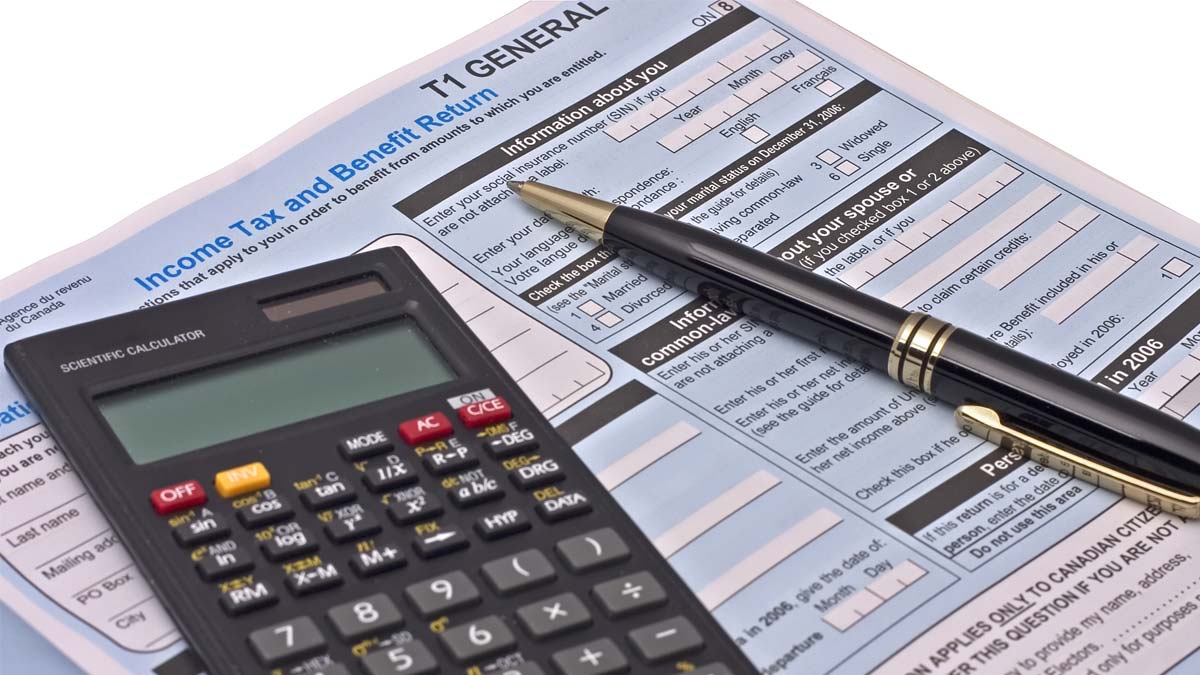
How Much Tax Will I Pay?
In an ideal world, we would never pay taxes. Since that is impossible, let’s use every legal means possible to try and reduce our taxes!
Canada’s Federal income tax act is over 3000 pages long. Only a team of tax accountants and lawyers can come close to understanding this complexity. Talk about overwhelming!
There is no need to feel so totally reliant on tax experts when a few key understandings can help us navigate the tax landscape more easily.
You’ll need some advice along the way, especially since you haven’t spent your whole career studying this. Part of our role as financial advisors is to integrate tax planning into our clients’ financial plans.
The first thing to understand is the effect of income taxes on different levels and types of income. We have provided our Tax Calculator to get you started.

How Are My Investments Taxed?
We should all strive to maximize our investment income in the most tax-effective way.
In a non-registered account, each type of investment income is taxed differently. There are four types of income: capital gains, interest, dividends and rental income. All of them have different tax treatment.
This is frustrating when you could have made a different investment decision had you known the tax implications! Many people follow the “once bitten, twice shy” reaction and rather than learn from the experience, they further procrastinate on important investment decisions. Others simply ignore simple opportunities to save money on their taxes on investment income.
We have provided our Taxes and Investment Income Calculator for you to better understand how capital gains, interest, and dividends are taxed.
If you have any questions about developing and implementing a more tax efficient portfolio please schedule an appointment.
Optimizing the tax efficiency of your investment strategy can make a major difference to your wealth. No one wants to pay unnecessary taxes, especially if there is a better way.

How Will Generosity Reduce My Tax?
There are causes and charities that we hold close to our heart. We often end up donating to these charities to support their future.
Giving generously always feels good. Other than feeling like you are making a difference, donations give you charitable tax credits.
To see how a charitable donation impacts your tax situation, please click here to use our “Charitable Donation” calculator.
Another way to make charitable donations is by donating shares to a charity. Theses shares must be in a taxable investment account for this to have an impact.
Donating shares has a few major advantages:
- You will not have to pay the capital gains from the growth.
- You will get a tax credit for the market value of the shares donated.
- The charity can continue to hold these shares in a tax sheltered environment while continuing to grow its value and receive any income.
To see the impact of donating shares to a charity, click here to use our “Donating Shares to a Charity,” calculator. The Charitable Giving infographic will also be a useful reference.

Will Inflation Ruin My Retirement?
We all want to be able to support our lifestyles both today and in the future. However, there is a silent enemy working against us. Its name is “Inflation.”
Inflation is like dry rot. We don’t see it in our own lives until we open up a wall and realize our house is crumbling! Everything becomes more expensive over time and our dollar buys a fraction of what it used to!
This can be disappointing when you realize that the money you have worked so hard to save and invest does not have the purchasing power it once had.
The best way to understand the effect of inflation is to play around with some long term scenarios using our “Effect of Inflation” calculator.
Understand, plan, and overcome the effects of inflation on your future. If you don’t, you may end up sacrificing your lifestyle and standard of living as things continue to get more expensive.
Those who plan for inflation end up far more confident in their ever-increasing ability to meet the reality of a rising cost of living.
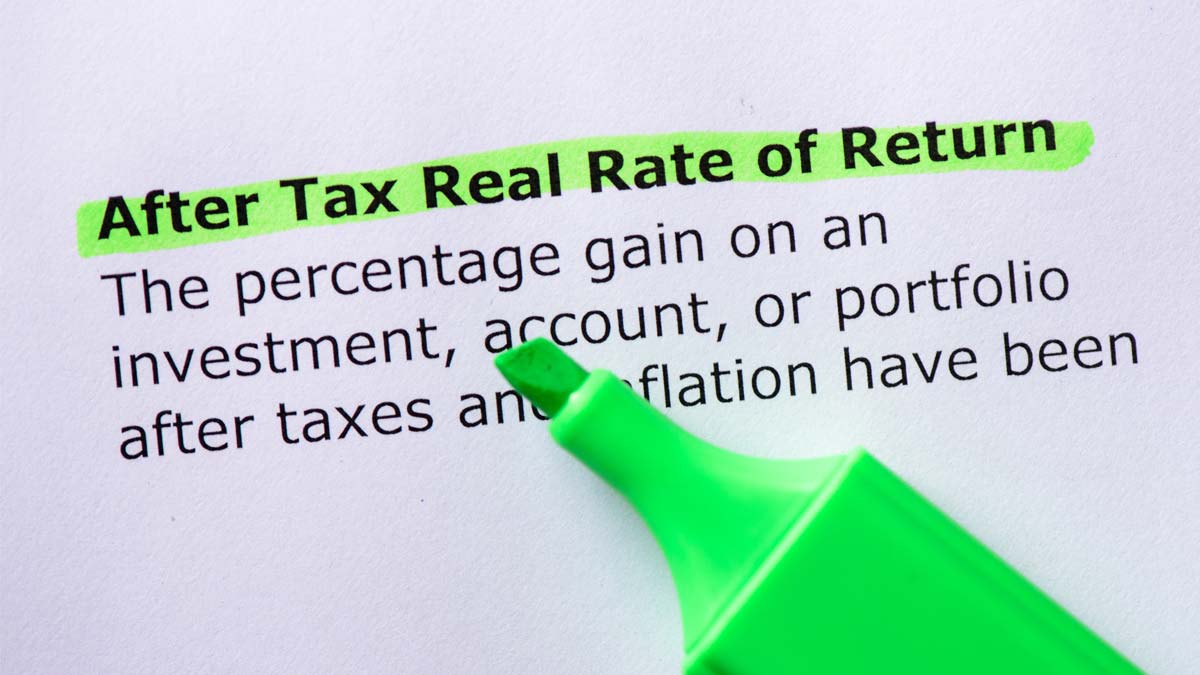
What Is My "Real" Rate of Return?
Everyone wants to get a high return on investments, but there is a double-whammy in your way!
Both Taxes and Inflation have a serious impact on your investment returns!
It is frustrating to realize that the money you have diligently saved and invested is not worth as much as you thought.
While taxes are necessary and inflation is a natural bi-product of a thriving economy, it is important to realize that there are many consequences if you do not take these into account.
We all experience having to pay taxes and the effects of inflation through increasing prices on most goods and services that we buy.
Use our “Real Rate of Return” Calculator to understand how taxes and inflation impact your investment return. This will help you to understand the overall picture of your investment returns when tax and inflation are accounted for.
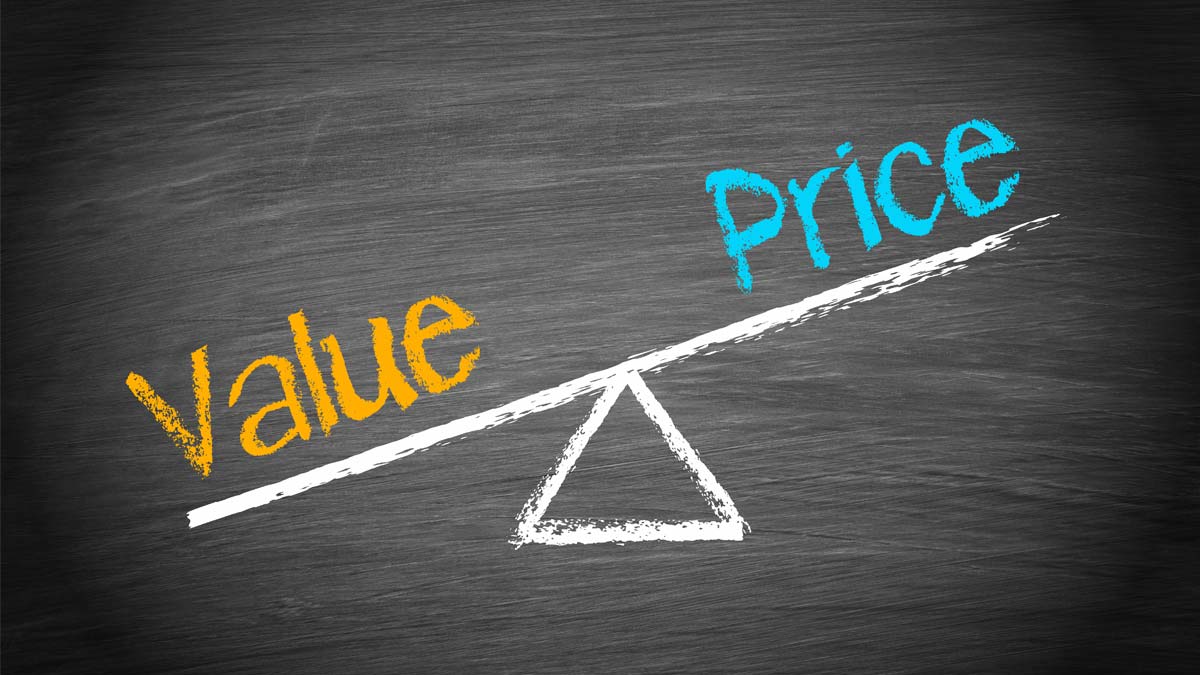
How Do Fees Impact My Wealth?
Most investors are willing to pay a fair fee for the financial and investment advice they receive as they work toward the goals that matter to them. There comes a point though when excessive fees outweighs the value received.
An advisor should be aligned with helping to achieve a clients’ goals, not sabotaging them.
We all know that building wealth and financial planning can be overwhelming. This is why we often work with a team people with experience and education in that area. This process works best when there is alignment of objectives between client and advisor – the focus on your long term goals.
One of the core mandates of our investment philosophy is the elimination of unnecessary costs, which should instead be directed toward our clients’ financial dreams.
Our Fees and Returns Calculator can help you assess the long-term impact of the fees you pay. Our “What Your Investment Fees Pay For” infographic breaks down a typical managements expense ratio, although this breakdown can vary quite a bit!
Being clear on the value you are receiving from the fees being charged should give you greater confidence in growing your wealth and knowing how well you are being supported along the way. Please contact us if you are interested in our “Value/Fee Audit which shows the value you are receiving and the fees you are paying in return.

When Should I Take My CPP?
You’ve been working hard your entire life, with the goal of a happy retirement. A key part of your retirement income includes finally being able to receive income from the Canada Pension Plan (CPP).
In many cases the decision of when to take CPP can be complicated. If you start early, the amount you receive is reduced, while if you wait the amount increases.
This decision can be confusing, especially when you start to account for the uniqueness of your life.
So when is the ideal time for you to start your CPP?
This decision depends on 2 important things:
- How long do you expect to live? We can think of CPP partially as longevity insurance. If you expect to live a long life, you should try to maximize your CPP payments as much as possible.
- Do you need the cash flow? If you foresee needing the extra cash flow from CPP, you might need to start earlier. Especially if this helps to alleviate financial stress.
To see how this works in your life, click below to use our “CPP Benefits – Early or Later” calculator. For your reference, we have also provided a link to download our “Taking Your CPP” Infographic.
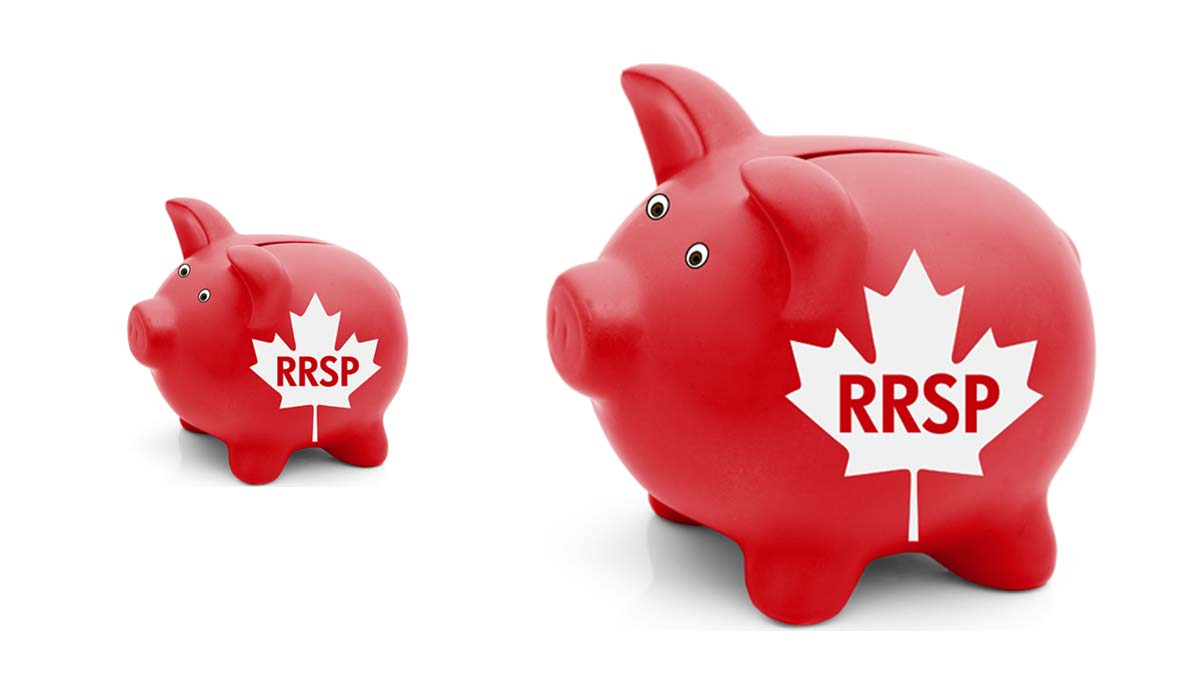
How Do I Better Grow My RRSP?
We need to maximize the growth of our RRSP toward retirement. No argument there, but the task can be overwhelming. It can seem complicated and sometimes impossible.
Luckily, there are many small things that you can do to help grow your RRSP. The important thing is to take these steps one at a time.
Here are 10 ways to grow your RRSP so that you can secure your retirement:
- Contribute the maximum.
- Start early in life. By starting early, you have more time for your money to grow tax free.
- Contribute monthly – not only does this help with consistency, it also allows you to take advantage of dollar cost averaging (link to article on dollar cost averaging).
- Make an annual lump sum at the start of the year. This lets your contribution enjoy a full year of tax free growth.
- Contribute to a Spousal RRSP. This is a great way to split income with your spouse. This is also useful if your spouse is younger than you (click here to learn why).
- Reinvest your tax refund.
- Optimize your asset allocation. Allocating by geography, sector and asset class can help you to maximize your return while minimizing the risk.
- Earn a higher rate of return. This might sound obvious, but it is possible with the right investment methodology.
- Retire later. This also allows more time for your money to grow without being drawn on.
- Work with a professional advisor. An advisor will help you to work toward the goals that matter to you.
To see these concepts in action, click here to use our “Tale of Two RRSPs” calculator.
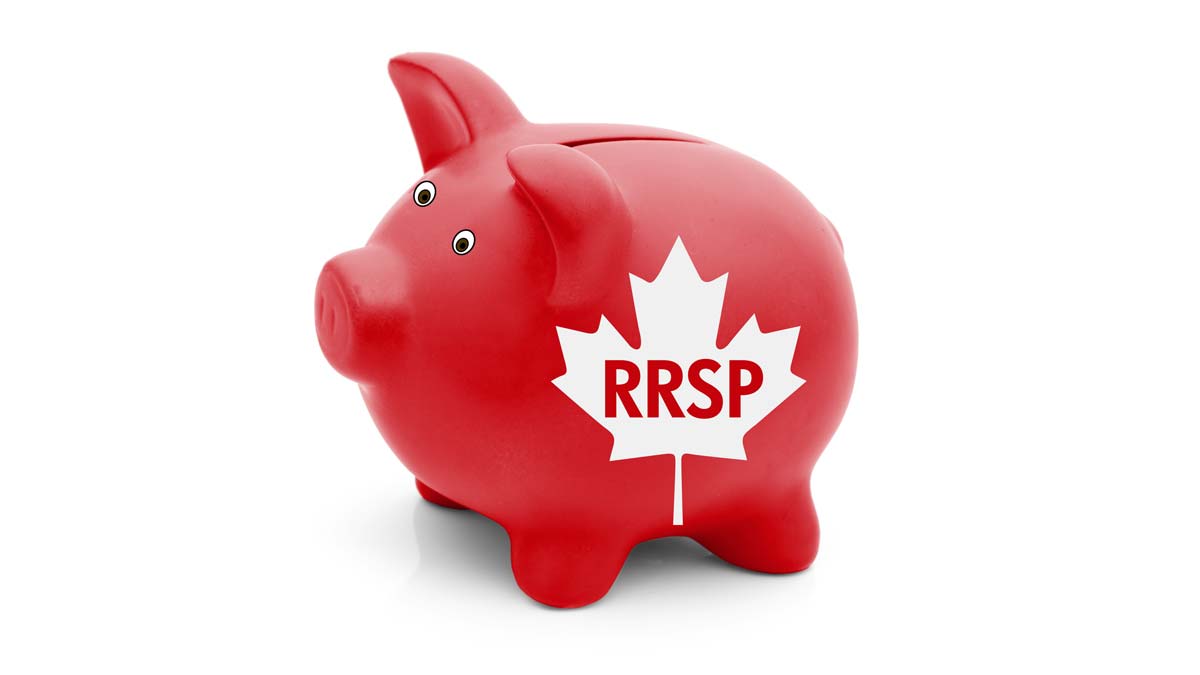
How Does an RRSP Lower My Taxes?
Day to day expenses and the cost of living in general can make it difficult to save money for your retirement.
After you add up the expenses and taxes, there may not be any money left at the end of the month! It is difficult to prioritize and plan for your future when you have so much to worry about in the present.
Luckily, there are a few RRSP benefits that are designed to help you improve your retirement lifestyle. The main one is the tax deduction you receive. This effectively lowers your taxable income by the amount that you contribute to the RRSP.
That’s not all! While the RRSP is growing, your money compounds tax-free and the effect is exponential. For example, with a 6% rate of return compounds at 6% on 6% etc. Without the RRSP and a 40% marginal tax on the growth, that’s only 3.6% on 3.6% etc.
Our RSP Tax Savings Calculator will help you see the impact that an RRSP contribution can make.
Planning for your retirement must start some time and we want you to feel confident from the start.
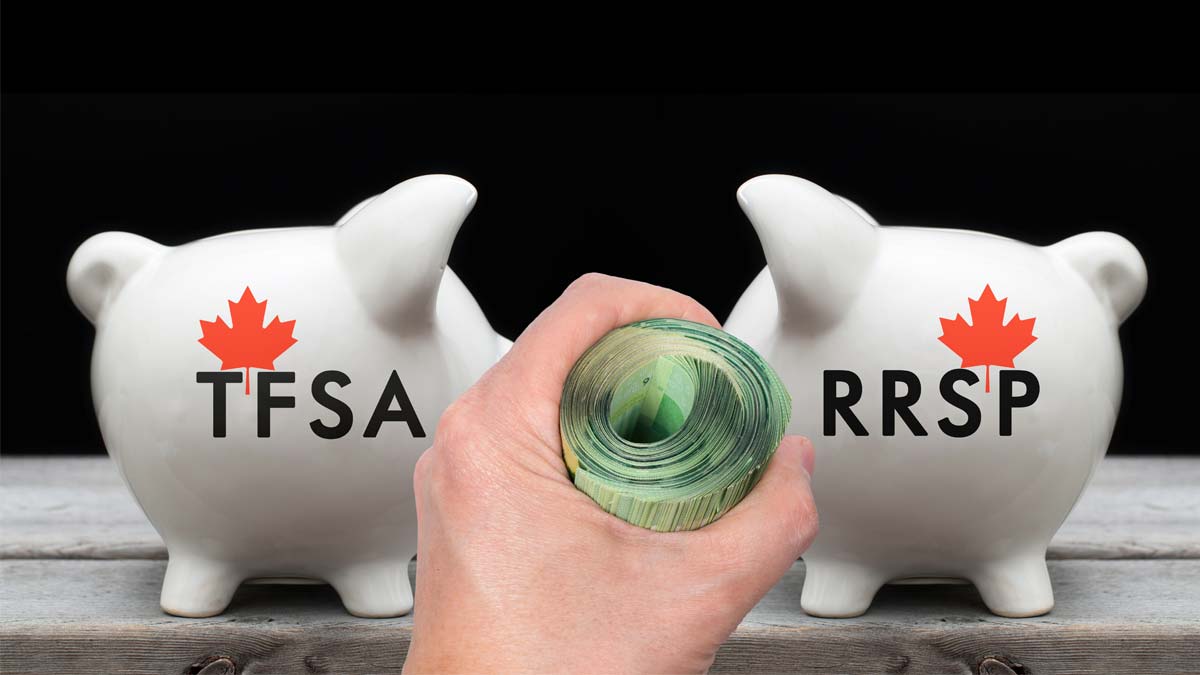
Should I Invest in a TFSA or RRSP?
So you have a bunch of money that you are planning to invest.
You are probably debating if you should put it in your TFSA, RRSP, or an investment account.
You are definitely not alone in wondering what to do. Contributions to your RRSP and TFSA should usually be prioritized over an investment account until you reach the contribution limits. Our free TFSA vs RRSP calculator will help you answer that question. You can also download the following informative infographic “RRSP & TFSA.”
The answer to this question depends on your life stage, objectives and tax situation. The question is best answered within the context of a financial plan. If you don’t have a plan, please click here to get started today.
If you have any questions about our calculator or about your RRSP or TFSA, please contact us.
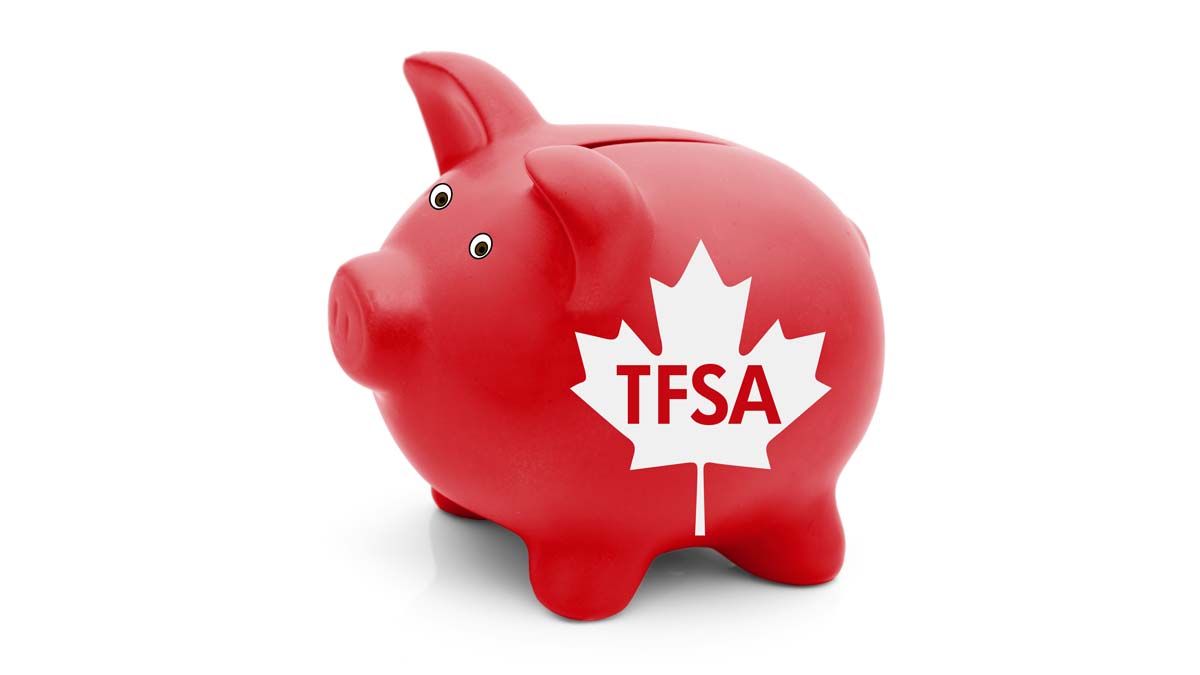
TFSA or Taxable Investment?
In a perfect world, we want a great investment return without paying any taxes!
Because it is so rare to get a perfect tax break, people are often suspicious of the Tax Free Investment Savings Account (TFSA). We run the danger of neglecting a very valuable tool that could save us a fortune in taxes over time.
We should be paying more attention to maximizing the TFSA’s power. We have seen the benefits especially well for our clients who have maximized their contributions ever since the TFSA was made available in 2009.
We have provided our free TFSA vs Taxable Investment calculator to help you see its power.
The TFSA account is a powerful tool in building your wealth. By not understanding its benefits, you may be eroding your wealth through excessive taxation.
Everyone wants a better way when thinking about reducing the taxation on investments. The TFSA is in many ways the “Holy Grail” of registered savings vehicles in both its tax-efficiency and flexibility. The only downside to it is its contribution limits.
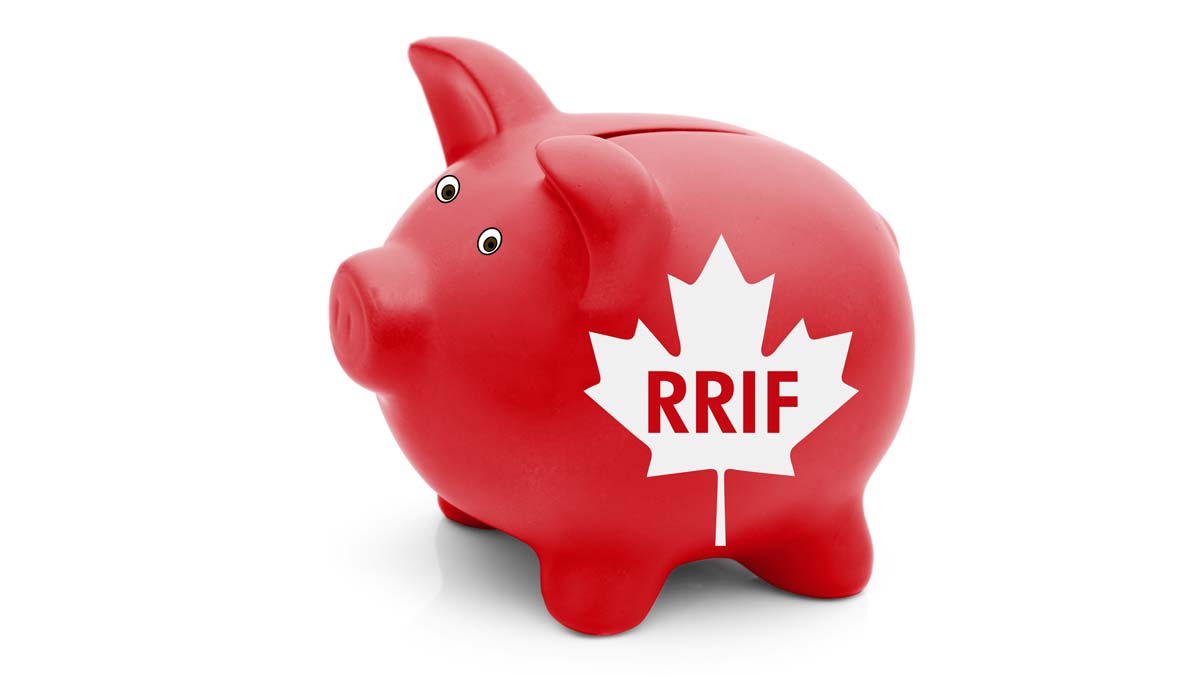
How does a RRIF work?
You have saved diligently for your retirement through your Registered Retirement Savings Plan (RRSP). In order to begin using your RRSP for a retirement income, you need to set up a Registered Retirement Income Fund (RRIF). This makes it possible for you to withdraw money without triggering a withholding tax.
You might be wondering “how much can I take out of my RRIF?” or “How long will my RRIF last?”
After so many years working and saving for this, the last thing you want to worry about is your retirement income.
Rather than try to explain it in words, our RRIF Payment calculator and RRIF Infographic will help answer many of your questions by trying several scenarios using your own situation.
